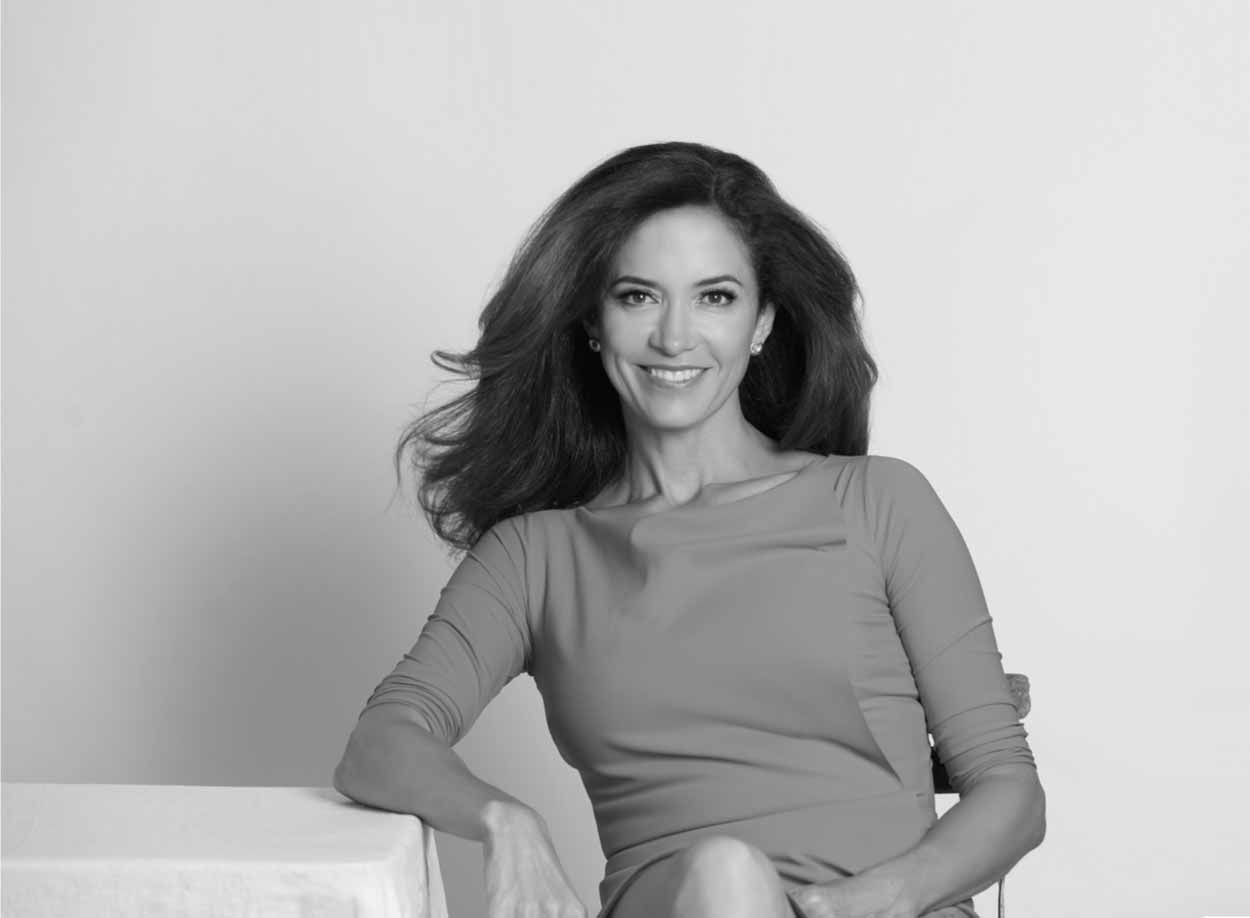We Are All Human’s Founder Shares How Compassion Is The way Forward

Share This Article
Claudia Romo Edelman the founder of We Are All Human, chats about inclusion, communities, and why we should all care about diversity.
I admire women who make it their life’s mission to help others. One of my earliest memories of experiencing this is seeing the smiling images of Audrey Hepburn in her senior year carrying a child on her back during one of her UNICEF trips. That’s when I became a fan of her movies and realized that success comes from the positive impact we have on others. When I hopped on a call with Claudia Romo Edelman, a Special Adviser at the United Nations, who has been in the driving seat for equity campaigns for more than two decades, the same feelings of admiration emerged.
Her philosophy about compassion moving us towards a more sustainable world stuck with me after the call. Sustainable isn’t only about trees and maintaining our bee population. It’s also about valuing and sustaining all parts of our human population. It’s that philosophy and ethic that pushed me to learn more about Claudia. During our call we spoke about one of her newest projects, We Are All Human, an organization dedicated to promoting ‘equity, inclusion and diversity’ and how we can all lend a helping hand during these times.
I created We Are All Human as a way to remind people that we are all human and there should be no distinction- sexual orientation, money in the bank, or political association.
Claudia Romo Edelman
Before humanity can begin accepting one another, communities have to begin accepting themselves. Claudia described We Are Human as a project centered around “bringing humanity to the minorities.” Within these communities, she found that financial status is a barrier that leaves many marginalized from their communities. She reconnects them to be accepted by their community as a whole. “We started working with the Hispanic community about a year and a half ago. One of the main barriers is the unification,” she explained. “The rich don’t talk to the poor. So, we aim to unify Hispanics with the same goal and to change the perception of Hispanics.” The other part of We Are All Human is based deeply on the fundamentals that education can help others realize their potential to make a greater contribution to society. “Training, development skills, and even networking opportunities are provided for these communities to have a greater chance to help themselves and shift perceptions,” Claudia said.

Since COVID-19 sent shock waves throughout the world, Claudia and her team have positioned themselves to be in a greater position to educate, help, and bridge the divide between one of America’s most vulnerable communities. “We launched Hispanic Star to support the people most impacted by COVID-19 from the gig economy, small businesses, and factories.” Yet, its launch wasn’t meant to be in March 2020. Claudia explained how the platform, which was 8 months in the making, was originally planned to launch later in 2020. Yet, after seeing the quick serialization of COVID-19’s economic impact, she pushed for its launch date to be moved up. “The Marriott hotels sacked two-thirds of their workforce. Restaurants were closed throughout the country. Thirty million children depend on school lunch.” Claudia ran through the list. Some were statistics that news outlets have been ringing alarms about for weeks. Others were mostly left unseen by the general media. “It is also important to provide a platform for mental health, for people to say that I need to talk to someone.” Putting her response and recovery plan into action, Hispanic Star offers information and connections to help the vulnerable move towards a path to recovery and those that are in a position to help, a way to connect with their community.
“We can never underestimate how important it is for everyone to communicate and support each other. If you feel well today, then help someone else.”
Claudia Romo Edelman
Claudia has made it her life’s mission to help others. The Mexican-Swiss diplomat has been using her platform to celebrate role models in the Hispanic community, advance advocacy for the Sustainable Development Goals and Climate Change for the United Nations, and spearhead several organizations dedicated to equality and social issues. “I want to move the world away from color,” she told me over the phone about her career goal. The sentiment that color shouldn’t be a divider between us has been the driving force behind her career path from starting as a journalist for Latin American media outlets to leading marketing campaigns for the World Economic Forum. It’s one of the reasons why she unites communities first, to be able to unite the world. When I ask her if she feels that she has met her goal, she directs my attention toward the current cultural shift that a lot of us have noticed over the last few decades. “There is a community approach with this younger generation, they’re more inclusive, and I think that’s where the change is happening.”
